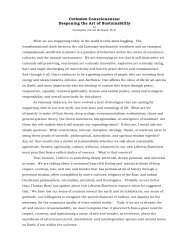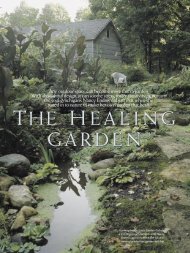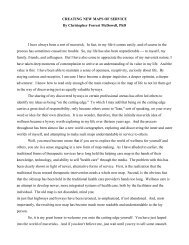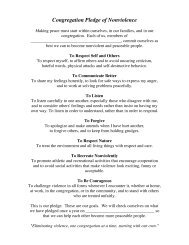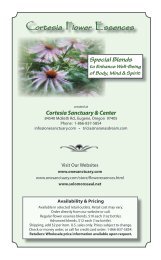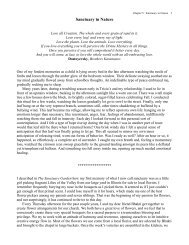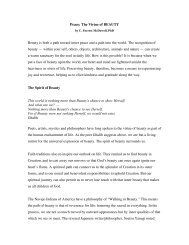Three Cortesian Devotions By Christopher Forrest McDowell, PhD A ...
Three Cortesian Devotions By Christopher Forrest McDowell, PhD A ...
Three Cortesian Devotions By Christopher Forrest McDowell, PhD A ...
- No tags were found...
Create successful ePaper yourself
Turn your PDF publications into a flip-book with our unique Google optimized e-Paper software.
Each of us, therefore, should see ourselves as a steward of our home, family,partnership, community, country, and ultimately the Earth. It is simply not enough to seeourselves as visitors or tourists. Each of us should honor and care for whomever orwhatever resides in these places with devotion and reverence. Our stewardship shouldreflect the kind and clear-hearted nature of service to ourselves, others, and nature. In thissense, then, we can be noble housekeepers, keepers of love, keepers of friendship,keepers of our community and surrounding natural environment. I have identified severalqualities that make unconditional stewardship very <strong>Cortesian</strong> in expression. Within thesequalities you will hear words such as keeper, teacher, friend, guest, host, borrower, all ofwhich speak to the reciprocal unifying roles inherent in good stewardship and reverentliving.Harmonic AttunementWhen we think, “I want an Earth that is healthy, a world full of peace, and a heart filledwith love,” we have initiated a caring relationship between our heart and mind. RudolfSteiner calls this process “heart thinking”: committing ourselves to build a bridgebetween our mind’s intellect and our heart’s emotion so that we think, feel, and act out ofour full humanity. When we further ask the question, “How can I serve the well-being oflife on this planet, in whatever form it presents itself?” we are consciously seeking tobond our thinking heart as “our Brother’s Keeper.”Heartfelt stewardship can only exist in relationships. And it can only be initiated byreleasing the tension of separateness. We all can relate to this tension of mistrust, fear,anxiety, or the need to control others or defend ourselves (i.e. our thoughts, emotions,beliefs, possessions, etc.). But we can also relate to experiences in which this tensionwas replaced by feelings of unity, trust, love, and compassion. Such experiencesdissolved any perception of distance, replaced instead by an overriding sense of harmony.This is the power, for example, of a person who is able to develop a trustworthy andrespectful relationship with animals, especially wild ones, as exemplified in the recentbestselling book, The Horse Whisperer. But it is also the power of a mate giving grace tothe errors of a spouse in the form of forgiveness, thereby reaffirming a deeper sense oflove, trust, and service to the relationship.What makes harmonic attunement possible in relationships? I believe it has to do withrecognizing the necessity for reciprocal courtesy as a function of the inherent rights,privileges, duties, even gifts that are important in sustaining and regenerating bondedconnections.The idea of reciprocal courtesy is not new. It has been a cornerstone of a perennialphilosophy, a form of moral ethics, in ancient tribal and native cultures, Easternmysticism, even the teachings of Jesus Christ, Gandhi, and others. The well knownprayer of Saint Francis (“Lord make me an instrument of your peace. . .”) is a testimony



